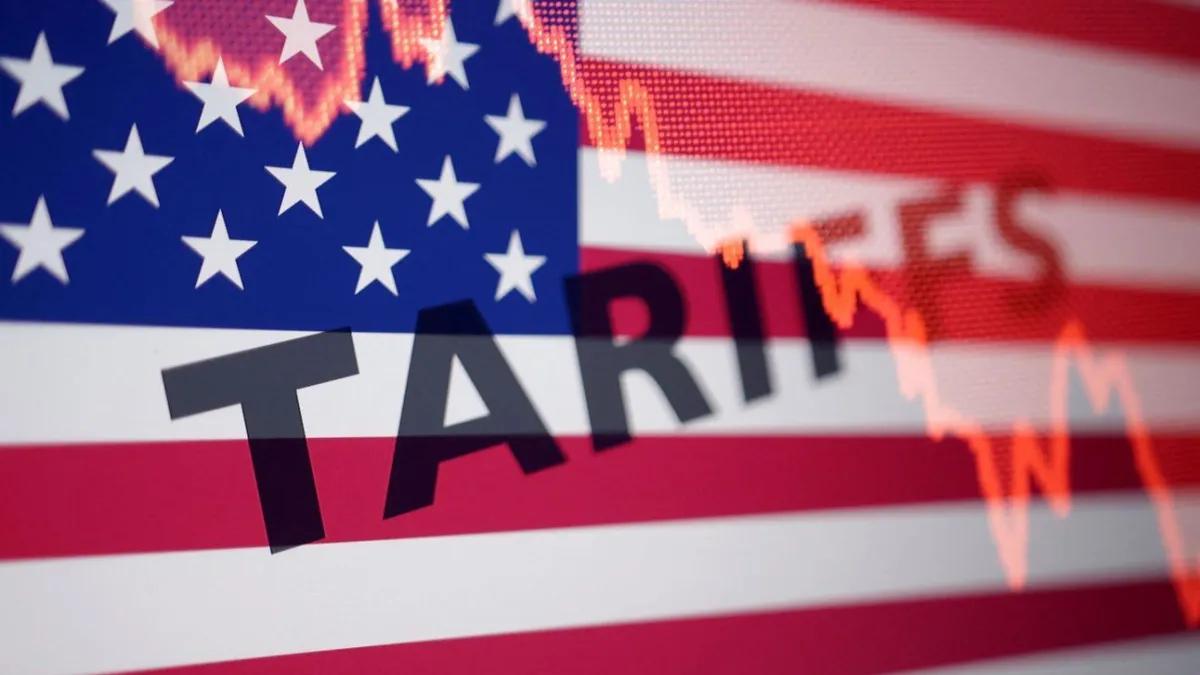
Attending the Group of Seven meeting Monday in Alberta, Canada, President Trump faced questions about the lack of progress in his effort to reach new trade agreements with much of the world, including the host nation.
Asked what is holding up the agreement with Canada as he stood with Canadian Prime Minister Mark Carney, Trump said the leaders had different “concepts” about tariffs and trade. “I have a tariff concept, Mark has a different concept,” he said, indicating that he hopes the two could resolve their disagreements today.
“I’ve always been a tariff person,” Trump explained. “It’s simple, it’s easy, it’s precise, and it just goes very quickly.” The Canadian leader’s idea is “more complex,” he added,” but also very good.”
Trump said more broadly that new trade deals should be coming along soon, while making it clear that his idea of a deal may be more like a command. "Look, we have our trade deals. All we have to do is send a letter: 'This is what you're going to have to pay,’” he said. “But I think we’ll have a few, few new trade deals.”
Trillion-dollar price tag: Trump arrived at the G7 meeting soon after the release of an analysis from Bloomberg Economics indicating that the president’s new tariff regime, combined with the effects of his withdrawal from the Trans-Pacific Partnership in 2017, will cost the world economy upwards of $1 trillion by 2030.
The TPP was a trade agreement negotiated by the Obama administration that was intended to bind the 12 Pacific-rim signatories into a free trade zone that could counter China. Trump’s rejection of the agreement was the first concrete sign of his plan to move away from free trade and toward greater protectionism for the U.S. economy.
More than a third of the economic loss would fall on the U.S. as the nation’s share of international trade shrinks, even as China’s remains steady, the analysis concluded. Reduced growth would mean 690,000 fewer American jobs by 2030, relative to the baseline in which TPP was enacted and Trump’s high tariffs were not in place.
Global trade has already been slowed by Trump’s tariffs. Both the World Bank and the Organization for Economic Cooperation and Development have slashed their economic growth projections for the year, with the OECD estimating that the U.S. would grow by just 1.6% in 2025, a sharp drop from the 2.8% growth rate recorded in 2024. The group blamed tariffs for much of the change.
Missing Putin: Trump lamented the removal of Russia from the economic forum. “The G7 used to be the G8,” Trump told reporters following a bilateral meeting with Carney. “Barack Obama and a person named Trudeau didn't want to have Russia in.”
Leaders of the Group of 7 nations — Britain, Canada, France, Germany, Italy, Japan and the United States — expelled Russia in 2014 following its military invasion of Ukraine’s Crimean Peninsula; the Canadian prime minister at the time was Stephen Harper, not Justin Trudeau.
Trump said Monday that the full-blown war between Ukraine and Russia that began in 2022 would never have happened if Russia had been kept in the group, adding that it wouldn’t have happened if he had been president that year either.
“Putin speaks to me, he doesn’t speak to anybody else because he was insulted when he got thrown out of the G8,” Trump said.